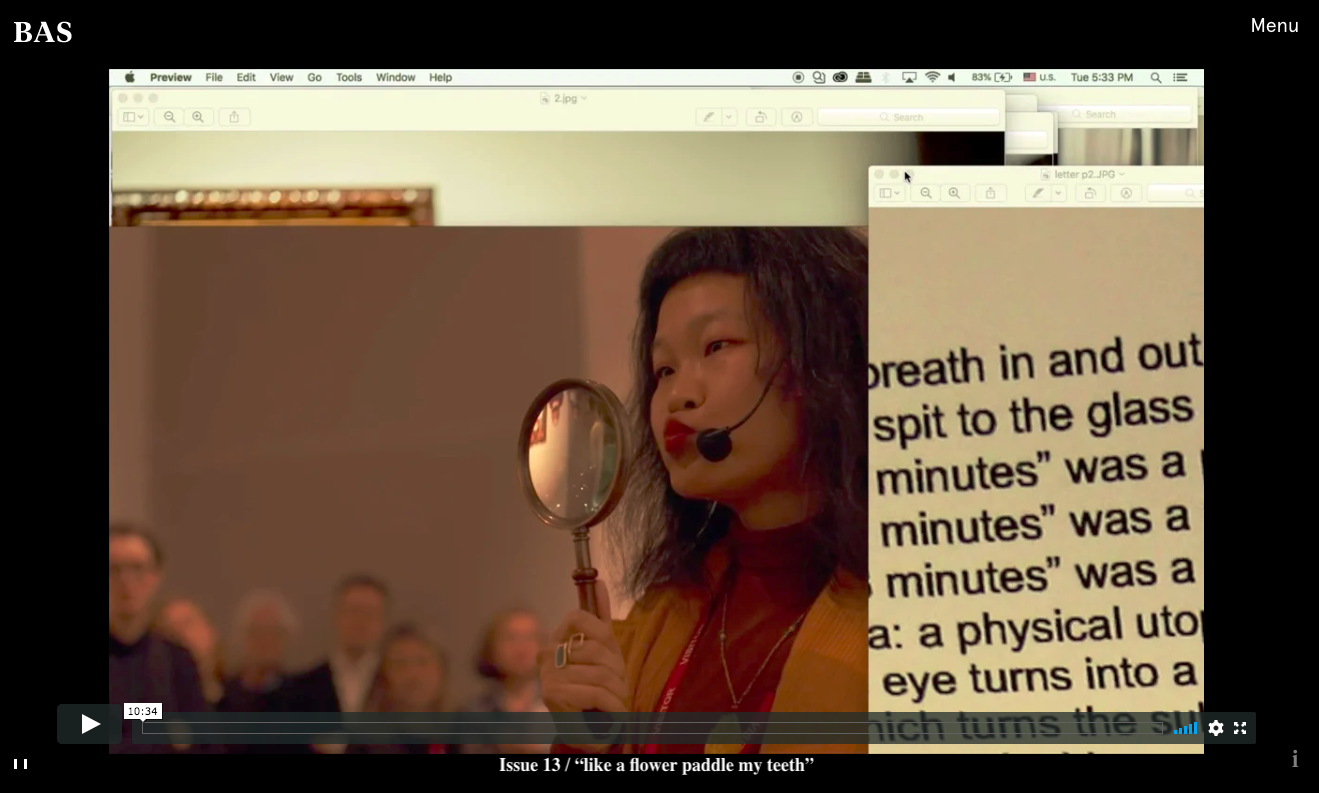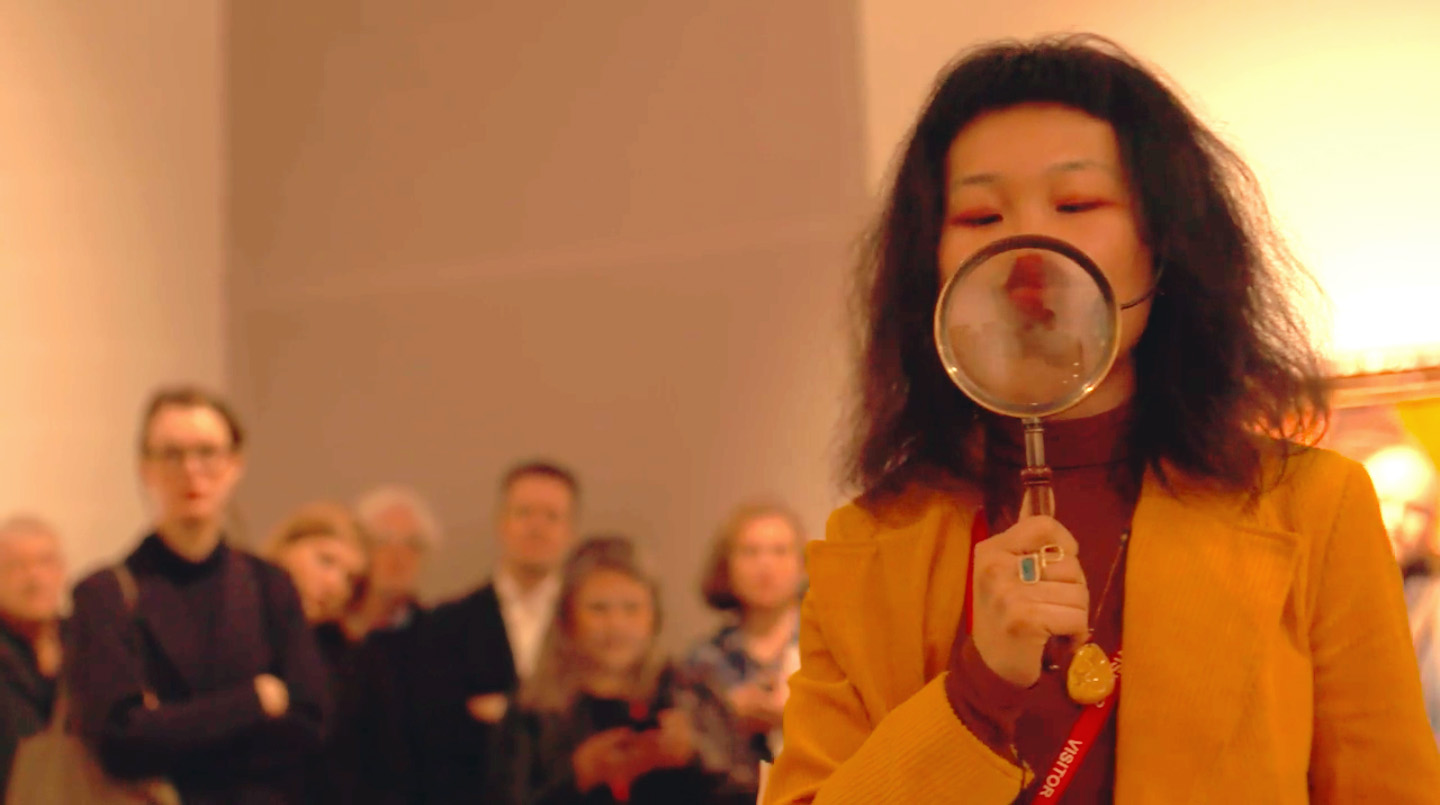![]()
02: Zoe Meng
On March
6th, 2019, at the Manchester Art Gallery, there was a performance
programme that took place along with a symposium on the Asian diasporic artist
Li Yuan-Chia: ‘The LYC Museum & Art Gallery and the Museum as Practice’.
The symposium was organized as part of the public programme for the temporary
exhibition: Speech Acts: Reflection-Imagination-Repetition, that was
curated by Hammad Nasar with Kate Jesson.Curator Annie Jael Kwan from Asia-Art-Activism Research Network invited three Asian diasporic performance artists to make work for the evening
event: ‘Being Present’, an experimental performance programme that was curated
in response to the exhibition.
Using a performance proposal consists of a number of untruthful information about the “acclaimed researcher” Zoe Meng, I impersonated as Zoe Meng in the performance. Zoe Meng is not a real person in this present society. However, her absence in the reality is incorporated with the material evidences that illustrate her fictional presence. The material evidences (performance materials that I use in the performance and the proposal for the performance) allow her narrative to inhabit a space between the institutional authority and the individual agency. Biographies of different scholars, artist and academics, such as the childhood experience of the 20th century diasporic Chinese artist Li Yuan-chia, the philosophical narrative of the feminist scholar Rosi Bradotti, and chimerical personal story of Zoe Meng, are mix-matched and “mashed” together as the contextual references for the fictitious biography of Zoe Meng.
Using a performance proposal consists of a number of untruthful information about the “acclaimed researcher” Zoe Meng, I impersonated as Zoe Meng in the performance. Zoe Meng is not a real person in this present society. However, her absence in the reality is incorporated with the material evidences that illustrate her fictional presence. The material evidences (performance materials that I use in the performance and the proposal for the performance) allow her narrative to inhabit a space between the institutional authority and the individual agency. Biographies of different scholars, artist and academics, such as the childhood experience of the 20th century diasporic Chinese artist Li Yuan-chia, the philosophical narrative of the feminist scholar Rosi Bradotti, and chimerical personal story of Zoe Meng, are mix-matched and “mashed” together as the contextual references for the fictitious biography of Zoe Meng.
Video Essay: ‘Like a flower paddle my teeth (2019)’
WATCH HERE

PERFORMANCE DOCUMENTATION
WATCH HERE

